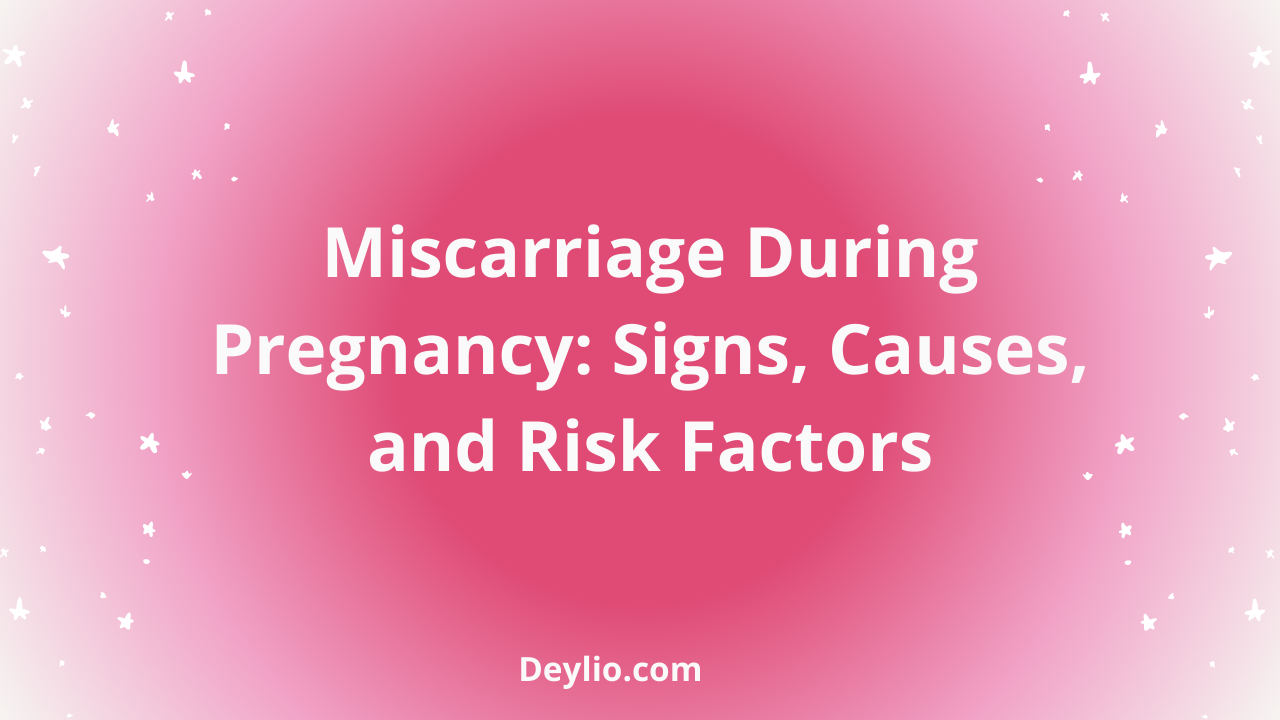A miscarriage is the spontaneous end of a pregnancy before the 20th week, typically before the fetus can survive outside the womb. This occurs when embryonic or fetal development stops naturally, often due to biological reasons such as chromosomal abnormalities or underlying health issues. Experiencing a miscarriage, especially in the first trimester of pregnancy, can be physically and emotionally challenging. Understanding the signs, causes, and risk factors can be a crucial first step toward acceptance and making informed decisions. This article aims to guide you through the essential elements to better understand this experience.
Recognizing the Signs of a Miscarriage
Miscarriage symptoms can vary from one woman to another, but some signs are commonly associated with it. While these signs don’t always mean a miscarriage is happening, they warrant close attention and a prompt consultation with a healthcare professional.
- Vaginal Bleeding: Bleeding is the most common symptom, although some women may experience it without losing their pregnancy. If the bleeding is heavy or includes blood clots, seeking medical help is essential.
- Abdominal Pain: Cramping or lower abdominal pain, similar to menstrual cramps, can also indicate a miscarriage. This may be accompanied by lower back pain.
- Loss of Pregnancy Symptoms: A sudden drop in pregnancy symptoms, such as morning sickness or breast tenderness, can sometimes signal a miscarriage. If these symptoms disappear abruptly, it’s wise to consult a doctor.
Key Causes of Miscarriage
Most miscarriages occur for biological reasons, often beyond the mother’s control. Understanding these causes can help alleviate the feelings of guilt that often accompany a miscarriage.
- Chromosomal Abnormalities: Nearly half of all miscarriages are due to genetic issues that prevent the fetus from developing properly, which is why miscarriages are more common in the first trimester.
- Hormonal Problems: Hormonal imbalances can prevent the embryo from implanting correctly. Issues like thyroid disorders or low progesterone levels are some of the possible hormonal causes.
- Infections and Underlying Health Conditions: Infections such as toxoplasmosis or untreated chronic conditions like diabetes or hypertension can increase the risk of miscarriage.
- Anatomical Factors: Some women have uterine or cervical anomalies that make it challenging to maintain a pregnancy, especially if these conditions are undiagnosed.
Risk Factors for Miscarriage
Certain factors may increase the risk of miscarriage, although they don’t necessarily lead to one. Maintaining a healthy lifestyle during pregnancy is essential for minimizing risks.
- Maternal Age: The risk of miscarriage increases as a woman ages, especially after 35, when the likelihood of chromosomal abnormalities is higher.
- Smoking and Alcohol Consumption: These substances elevate miscarriage risks and may harm fetal development. Quitting entirely is recommended for a safer pregnancy.
- Obesity or Low Weight: Extremes in weight, whether obesity or being underweight, can interfere with pregnancy by disrupting the hormones necessary to sustain it.
- High Stress Levels: While the link between stress and miscarriage is debated, very high stress levels could affect pregnancy. Relaxation techniques like prenatal yoga or using a maternity pillow, like the Deylio pillow, can bring welcome comfort to daily life.
Preventing the Risk of Miscarriage: What You Can Do
Although some miscarriages are unavoidable, adopting healthy habits can reduce risks. Here are a few recommendations for a safer pregnancy and minimizing the chances of complications:
- Regular Check-Ups: Routine medical check-ups allow early detection and treatment of potential issues.
- Balanced Diet: Nutrients like folic acid are crucial for the fetus’s healthy development.
- Stress Management: Emotional well-being is important too. Using a maternity pillow, such as the Deylio model, for better sleep can greatly enhance comfort and help reduce daily stress.
Coping and Moving Forward After a Miscarriage
A miscarriage can be a challenging experience, and seeking support and talking about it can be crucial. Every pregnancy is unique, and every mother handles this period differently. If a miscarriage does occur, allowing yourself time to heal both physically and emotionally is essential. Knowing you are not alone can make this journey easier, and understanding risk factors for future pregnancies may help in planning for a healthy pregnancy ahead.






